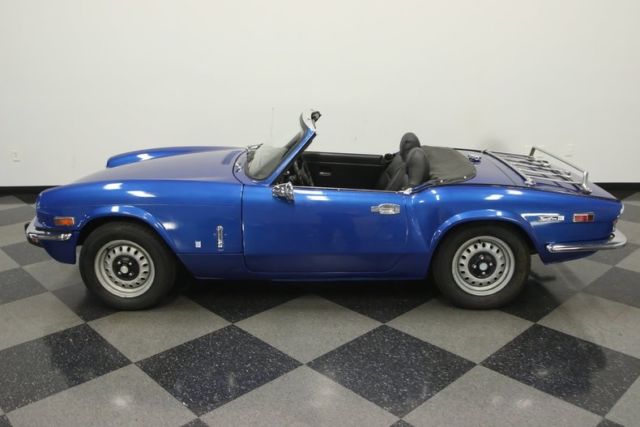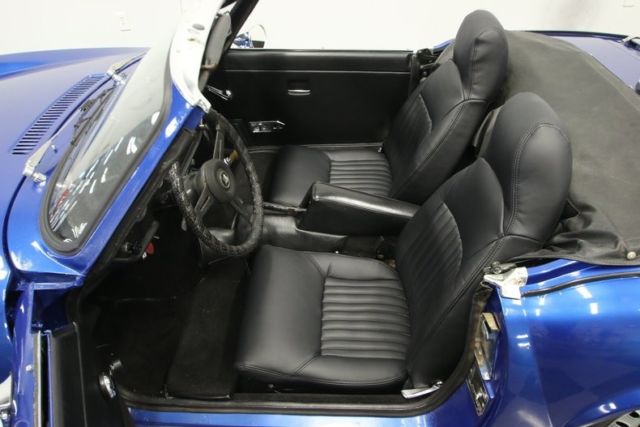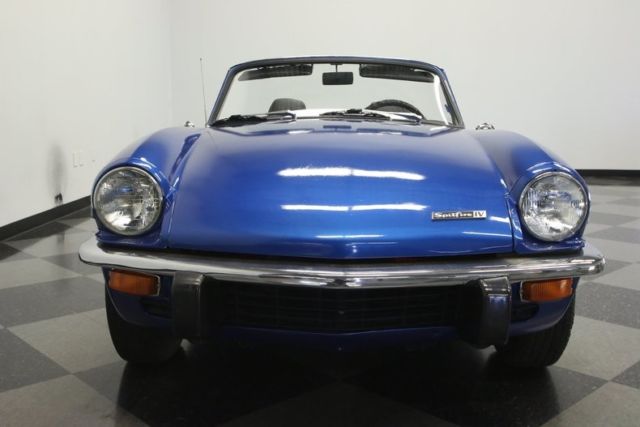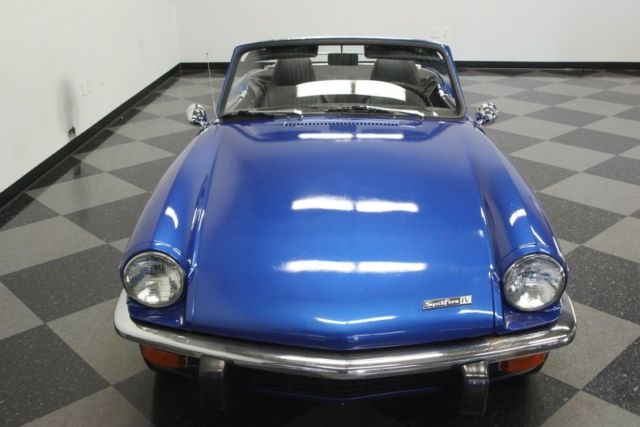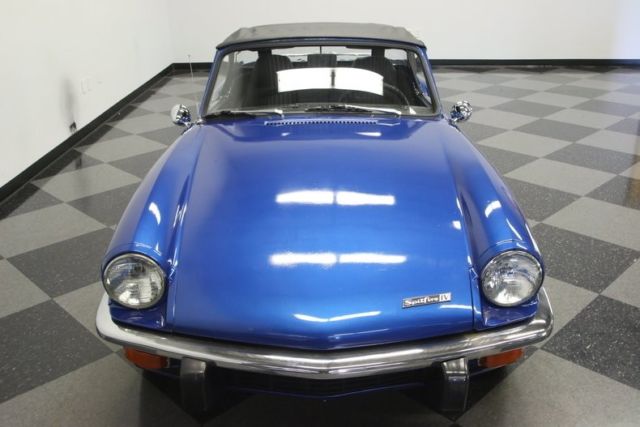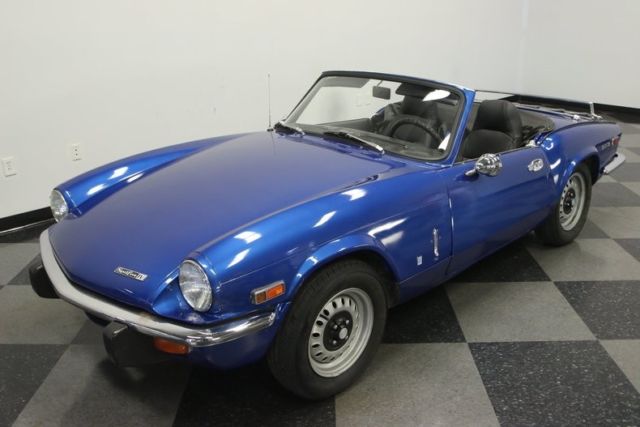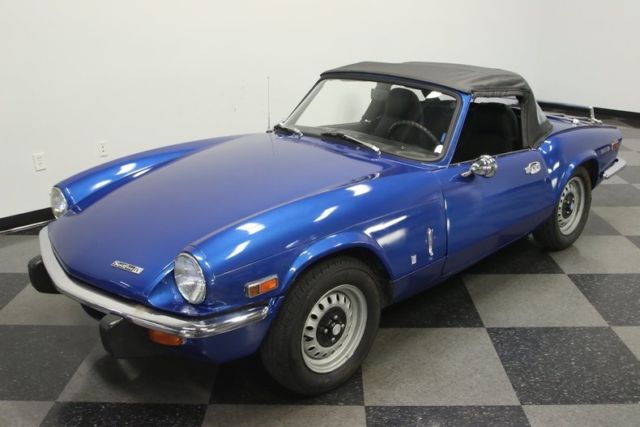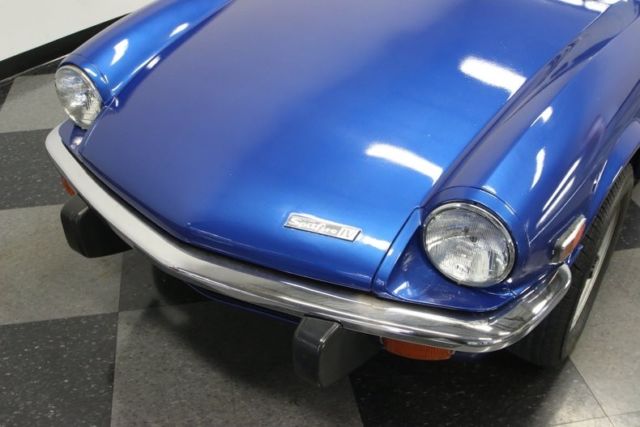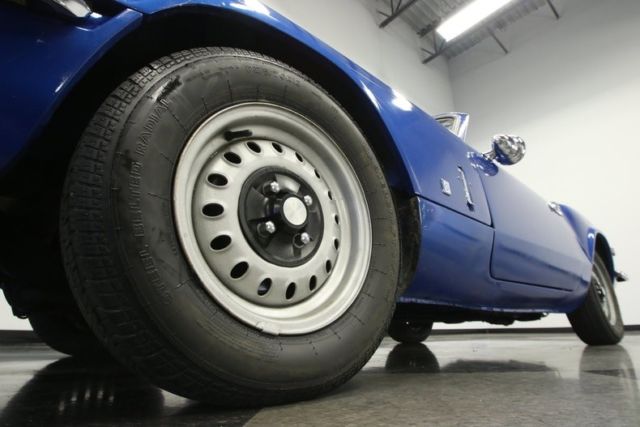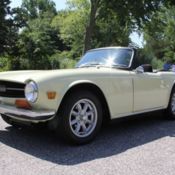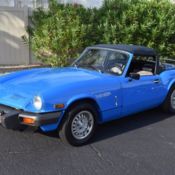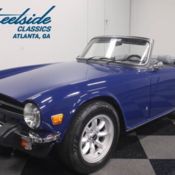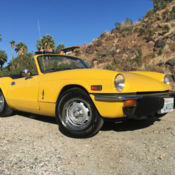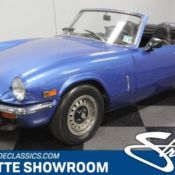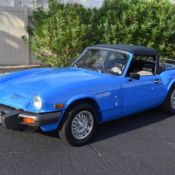|
British, attractive, nimble, and well-maintained - this 1971 Triumph Spitfire is everything you want at an affordable price. You're looking at the best of Europe. Italian styling wrapped in a nimble British package and named after a famous WWII fighter plane. These Mark IV series Spitfires had arguably some of the best styling cues of the bunch with the flat rear end that was shared with larger Triumphs like the Stag. If this one seems particularly appealing to you, that's... because it received a nice coat of Delph Blue that looks great in the sunshine. It makes the bright elements really stand out on places like the bumpers, mirrors, and luggage rack. Plus, the paint coordinates nicely with the darker elements like the newer black roof and front bumper guards. So if you liked the way the exterior black elements looked against the exterior, then you'll love this one even more with the top down. The Spitfire was always about representing the plucky nature of a British sports car. That meant an interior built for function. But in true English fashion, form-fitting style was still a priority, too. You see that especially in the comfortable high-back bucket seats that look recently recovered. The dashboard is low enough to give you a commanding view, but there's still plenty of room to hold the AM/FM cassette radio and the full gauge package. From the moment you slip behind the wheel, you know why Spitfires were legendary. The three-spoke sports steering wheel is the perfect diameter, and your right hand just naturally rests on the gearstick. This will fit you like a glove, and make you want to play hooky on every sunny day. And if the weather does turn gray and wet, then just reach back and raise the black vinyl top with one hand. The 1.3-liter motor in this Spitfire is believed to be original per the consignor. It absolutely looks correct in the engine bay, right down to the Stromberg carburetor. And the way it fires up readily tells you this one has been under the right care. These motors were certainly small, but it's lightweight nature is all part of the Spitfire's appeal. After all, the car barely tipped the scales, but it had a level of rigidity not seen on other roadsters of its day. These were built on a solid backbone chassis with lightweight metal partial unibody. This gave them a solid but nimble feeling on the backroads. And it only got better when paired with the four-speed manual transmission, fully independent suspension, and front disc brakes. Complete with owner's manual, here's an amazing roadster that will bring you more open top joy than anything at even double the asking price. Call today!!!
|
 Home
Home Contact us
Contact us NEWEST CARS
NEWEST CARS SELL YOUR CAR
SELL YOUR CAR FAQ
FAQ

